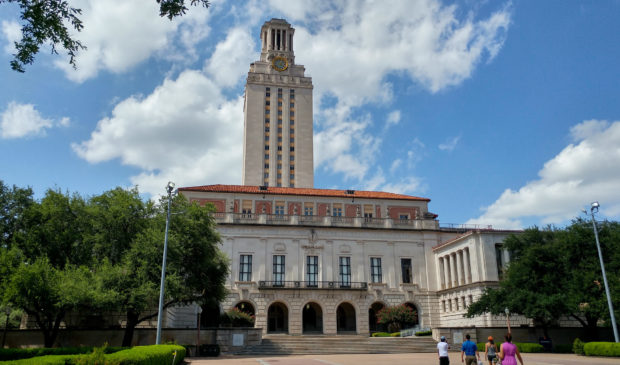UT incubator takes the lead in health care consortium targeting Covid-19 and future pandemics
Friday, August 7, 2020 by
Chad Swiatecki The University of Texas’ Austin Technology Incubator is leading a new consortium of more than 50 health care organizations from around the state working to combat the Covid-19 pandemic and prepare for future widespread disease outbreaks.
The Texas Global Health Security Innovation Consortium (TEXGHS) has started connecting medical school, community health care agencies and health care startups to work on pilot projects with issues related to the pandemic. Funded by the Austin-based incubator PandemicTech, the consortium is intended to solve some health care needs caused by the pandemic and will likely receive state or federal funding to expand its network and improve the state’s health care infrastructure.
Lisa McDonald, director of health care for ATI, said an early survey to gauge interest and potential needs brought responses from 70 companies and groups and led to partnerships between researchers and companies with similar interests. On one such partnership, researchers from the Dell Medical School at UT partnered with the Texas Advanced Computing Center for work on data related to contact tracing.
“We used those pilot projects to prove out the model that something like this could be useful both for the company that we’re assisting and also for the community,” she said. “From this point on, the way we’re selecting pilot projects is designed to align with the state of Texas, so when the state tells us that PPE contamination is top priority we go and find pilot projects and companies specifically working on that.”
McDonald said the consortium is focused on the immediate need for health care innovation related to the Covid-19 pandemic, while also looking for technologies that will be relevant to future large-scale public health events.
“One of our priorities is building resiliency overall, so the tech we’re working with isn’t necessarily around developing a vaccine specific to Covid-19 but creating a vaccine delivery system that could be used in any future mass vaccination of people. We’re working to support technologies that can be used to address Covid-19 but can really be used in the future.”
Andrew Nerlinger, co-founder of PandemicTech and venture partner at Bill Wood Ventures, said one issue relevant to Austin that the consortium hopes to address is the disparities in infection and recovery from Covid-19 among different demographic groups.
“It’s been well documented that Covid-19 has really kind of attacked different racial groups or different economic groups more severely,” he said. “One of the things this innovation consortium is well poised to do is take on that issue of health equity and health quality, particularly with community health organizations that we’ve been aggressive about getting in front of.”
McDonald said that early feedback from health care startups involved in the consortium showed that access to funding, potential partnerships and subject matter experts are the three biggest obstacles preventing their success. Thus far, she said member groups have found success addressing those issues by tapping into the statewide network that could make Texas a national leader in health care security.
Doug Norton, vice president of business development at Inspire Semiconductor and a founding member of the consortium, said the economic development benefits from the connections made will keep medical school graduates in the state.
“For years we had too many great talents created here in Texas, whether it’s at the Dell Medical School or UT Southwestern, and they all end up fleeing to either coast where the biotech startups are,” he said. “The idea here was to form a medical innovation district … it’s been working well and helps unify the state even more.”
Photo made available through a Creative Commons license.
The Austin Monitor’s work is made possible by donations from the community. Though our reporting covers donors from time to time, we are careful to keep business and editorial efforts separate while maintaining transparency. A complete list of donors is available here, and our code of ethics is explained here.
You're a community leader
And we’re honored you look to us for serious, in-depth news. You know a strong community needs local and dedicated watchdog reporting. We’re here for you and that won’t change. Now will you take the powerful next step and support our nonprofit news organization?









